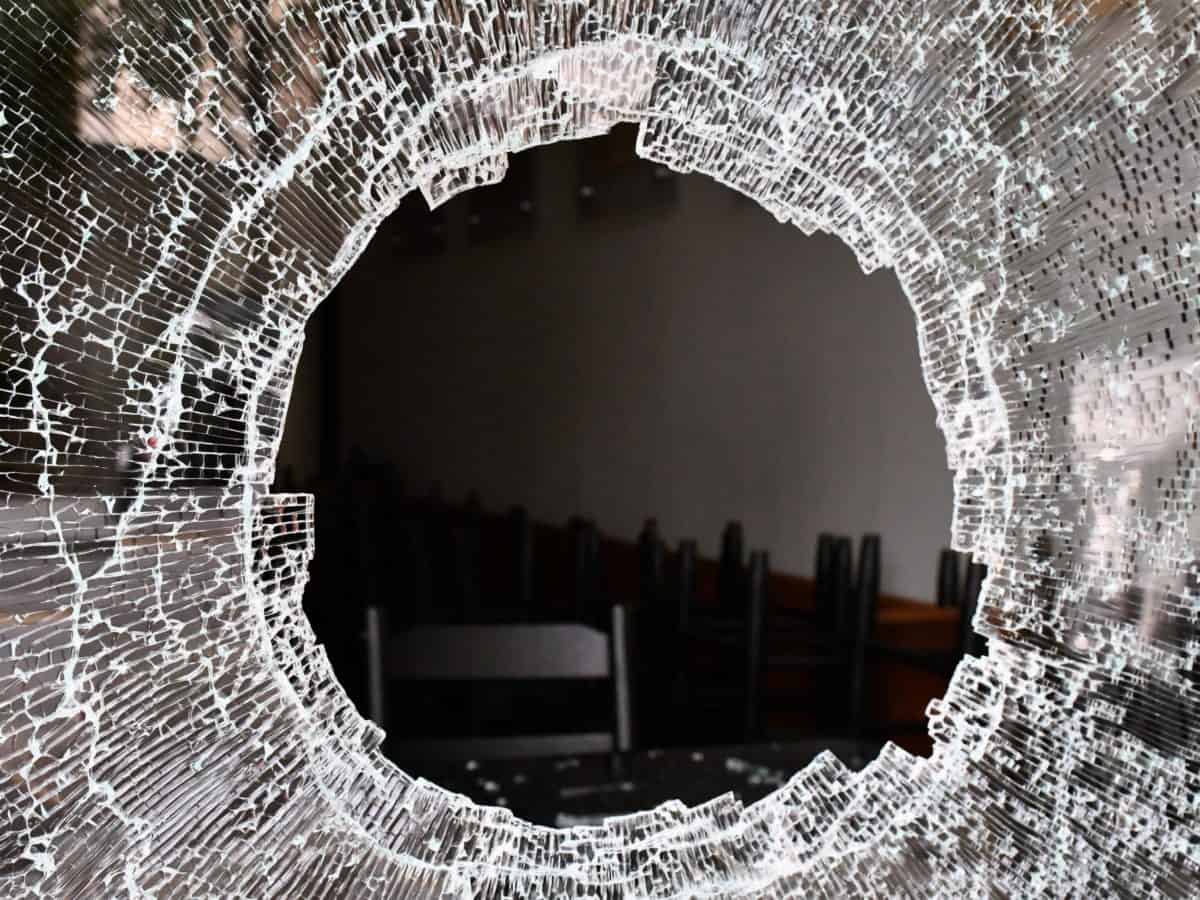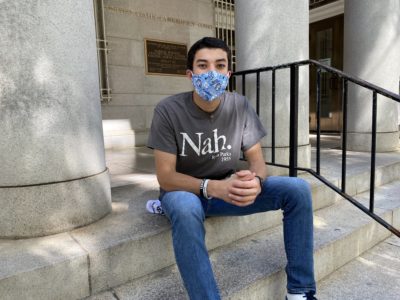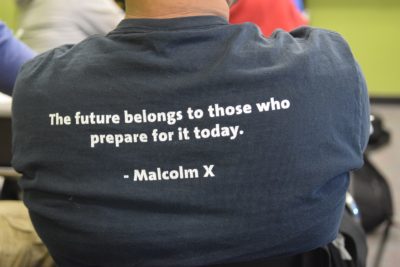

The complaint against police officer Derek Michael Chauvin for third degree murder of George Floyd charges, “Derek Michael Chauvin caused the death of George Floyd by perpetrating an act eminently dangerous to others and evincing a depraved mind, without regard for human life.”
The whole world was already under stress all at the same time because of COVID-19.
And, while under that collective stress, the whole world watched a white police officer kneel on a black man’s neck for eight minutes and 46 seconds.
According to the complaint, around 8:00 p.m. on May 25, 2020, Floyd bought cigarettes using a fake $20 bill at Cup Foods in Minneapolis. The clerk called the cops. Floyd was sitting in a car near the store when officers arrived on the scene at 8:08 p.m.
At 8:19 p.m., Chauvin kneeled on Floyd’s neck. At 8:24 p.m., Floyd stopped moving. By 8:25 p.m., Floyd didn’t have a pulse. Chauvin continued to kneel on Floyd’s neck for two minutes and 53 seconds after he became unresponsive. At 8:27 p.m., as an ambulance arrived, Chauvin removed his knee.
Floyd was pronounced dead at 9:25 p.m.
$20. Without regard for human life.
It was a lynching for all the world to see.
The white officer knew he was being recorded.
Floyd said he couldn’t breathe.
The people pleaded with him to stop.
The other officers did not intervene.
And in the face of the whole world watching what appeared to be the white officer’s invincibility — look it up: it’s the quality of being too powerful to be defeated or overcome — there is no law, there is no order.
And that is a problem for all of us. Floyd’s sister lives in Hoke County in our North Carolina.
‘The night has been long, the wound has been deep’
I am in this — and always have been — for the all of us.
Two weeks ago, I thought our most important issue of race and equity was broadband access. I was wrong. It shouldn’t take another killing of a black man to snap me back to reality.
On October 16, 1995, I was one of a handful of white women at the Million Man March.
That day, Maya Angelou said,
The night has been long,
The wound has been deep,
The pit has been dark,
And the walls have been steep.
…
The hells we have lived through and live through still,
Have sharpened our senses and toughened our will.
The night has been long.
This morning I look through your anguish
Right down to your soul.
I know that with each other we can make ourselves whole.
We’ve tried litigation. We’ve tried public policy research. We’ve tried journalism.
So little has changed. If anything, the world is more racist, more divided, more polarized.
Especially for black men.
‘The hells we have lived through and live through still’
Changing systems is so hard because they are rigid and exclusive instead of agile and inclusive (shout out to Opeola Bukola in Philadelphia for helping me understand that recently).
In an evaluation of prejudiced violence, researchers at Brookings write “there is no excuse for avoiding clear, accurate descriptions of American political dynamics. When the data show that President Trump’s support stems from racist and sexist beliefs, and that his election emboldened Americans to engage in racist behavior, it is the responsibility of social scientists and other political observers to say so.” Brookings is condemning systemic racism.
Recently, an EdNC virtual convening was hacked by white supremacists. Swastikas appeared on student slides. A band of avatars yelled the n-word. It was unexpected. It was violent.
A teacher wrote in the chat, “I teach high school. Unfortunately, it’s nothing I haven’t heard before.”
A student wrote, “I’m a black boy in NC. It is sad but true that these words and judgment are my reality. I just want to be a voice to break molds and stereotypes to prove that all cultures matter and a voice in the future even in terrible times.”
‘I look through the anguish, right down to your soul’
A teacher comments on Facebook, “Not too many people see looting as a strategy for political change. It’s an emotive response to oppression and violence committed against black people. As a teacher we know that ‘bad’ behavior is always a symptom of something else going on, there is always a root cause and our job as teachers is to look for the root cause of the behavior and to resolve it. BEHAVIOR IS COMMUNICATION and honestly, in the classroom when someone acts with extremes, they get more support to help resolve their underlying problems. So I understand property destruction when it is framed in those terms. NO ONE IS LISTENING to the pain and suffering of black people in this country because we can see nothing is changing.”
It is time to choose to start listening. Choose to listen to understand. The kind of listening that allows us to look through the anguish, right down to the soul. Collective empathy that will inform how we collectively move forward.
Meet Greear Webb, a Morehead Cain scholar at UNC-Chapel Hill and student organizer. He is black. It’s been hard for him to sleep. He has cried a lot of tears. Hear him.
“When it comes to anti-racism policies, whether that be in the education realm, the policing realm, the housing realm, young people have ideas.”
“Treat us as students with influence, and as youth with power.”
“Right now, we’ve got a problem with humans not seeing other humans as humans, and that treatment is definitely frustrating.”
“I just ask that America and North Carolina understand and give credence to the anger that those in the black community are dealing with and are facing.”
Meet Tammi Sutton, a founder of KIPP ENC. Many of her scholars are black and brown boys. Hear her speaking to white folks.
“We can be proximate. We can form genuine connections with communities and individuals who look different from us. The closer we are, the better we will begin to understand.”
“If we find ourselves in meetings, board rooms, selection committees, classrooms, councils, or any spaces without the voices of people of color, we can advocate for equity and diversity.”
“We can stop thinking it’s a good thing to be ‘color blind.’ We aren’t. Instead, we can remember it’s good to see the beauty of color AND all the ways that those who are black or brown are treated differently. We can see it, acknowledge it, and work to fix it.”
‘With each other we can make ourselves whole’
While we collectively figure this out, think about when you really need to call 911.
If there is a fire, yes. If there is a car crash, yes. If there is a medical emergency, yes. If there is a violent crime, yes.
Not over $20. We have other options for disputes over $20.
In the Stanford Journal on Civil Rights and Civil Liberties, there is an article entitled, “The 911 Covenant: Policing Black Bodies in White Spaces and the Limits of Implicit Bias as a Tool of Racial Justice.” Jonathan Kahn, a law professor, argues that racially restrictive zoning ordinances were used by white people to segregate neighborhoods until 1917 when they were ruled unconstitutional by the U.S. Supreme Court. Then white people, he argues, used contract-based racially restrictive housing covenants to do the same thing until the Fair Housing Act passed in 1968. Since then, he contends, white people have called 911 “when they are made uncomfortable by the presence of a person of color in a particular space in which they are perceived to be ‘out of place.’”
Kahn continues, “White people know they can call 911 to have police remove black people from white spaces regardless of whether they are openly engaged in any illegal or threatening conduct.”
If you are shaking your head, watch the video of Amy Cooper calling the police in Central Park when Christian Cooper, a Harvard graduate and board member of the Audubon Society with binoculars around his neck and all, asked her at 8:10 a.m. in the morning to put her dog on a leash as required.
All of us need to take a refresher course in navigating conflict and de-escalation.
If we want law and order for all, then just as we are building trauma-informed learning environments for students with adverse childhood experiences, we are going to have to build anti-racist, trauma-informed communities with agile and inclusive systems where there is regard for all human life.



